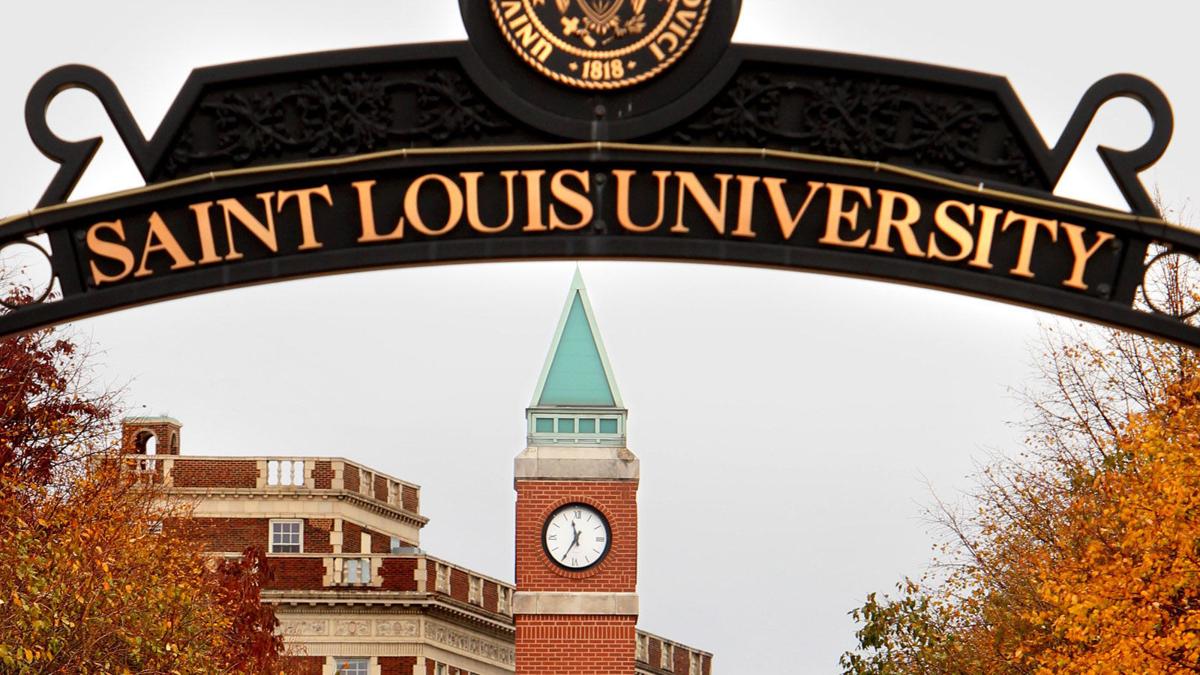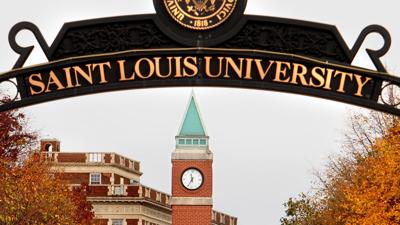If there’s one lesson that university presidents across America should have learned by now, it’s that capitulating to the Trump administration’s frontal assaults on academia will always yield a failing grade. If principle alone isn’t reason enough to resist (it should be), there’s the practical consideration that bending to this president’s authoritarian whims has consistently been shown to invite, rather than avoid, further abuse.
Kudos to St. Louis University President Fred Pestello for having absorbed that lesson. In joining more than 400 of his peers across the nation who have signed onto a public document calling out the administration's "undue government intrusion" on campuses, pushing back on President Donald Trump’s malignant campaign against academic independence, Pestello has done both the smart and the right thing.
People are also reading…
Washington University in St. Louis has, so far, chosen to keep its head down in apparent hopes of avoiding Trump’s anti-academia wrath. That may look like the safer path, but as Columbia University in New York could attest, it’s not. WashU should lend its well-earned prestige to this urgent act of resistance.
Like Trump’s other campaigns against illegal immigration, government waste and trade imbalances, his campaign against academia starts with the grain of a valid issue: ideological insularity at America’s top universities. It’s virtually beyond debate that too much of academia today tends toward silencing rather than engaging conservative dissent against its generally liberal worldview.
But just as Trump’s governmental reform push has recklessly hobbled important government functions; just as his obsession with trade imbalances has prompted spastic and self-destructive rounds of ill-conceived tariffs; just as his illegal immigration fixation has become a cruel jihad against even legal immigrants — his supposed concern with free speech on campuses has become the lever with which he is trying to control speech, as well as protest rights, admission policies, curriculum and every other element of academia.
This is how authoritarians operate: They set themselves up as champions of legitimate reform causes, only to pursue their true goal of breaking the independence of societal institutions for the sake of their own unfettered power.
The approach is no carrot/all stick — the stick in this case being the suspension of federal research funding. Never one to sweat the real pain his power plays inflict on real people, Trump has preemptively frozen billions of university research dollars that fund crucial work on health, the environment and more, then demanded far-reaching, often brazenly ideological policy concessions from university presidents to get that money back.
Columbia University was among Trump’s first targets, with the suspension last month of some $400 million in federal research grants. The university quickly capitulated to Trump’s demands, with new policies restricting student protests, expanding on-campus arrest powers and undermining Middle Eastern and African studies.
And how did the administration react to this meek compliance with its illegitimate bullying? The way bullies always do: by bullying some more. Not only did the administration continue withholding the initial $400 million in funding, but it froze another while pressing new demands.
The administration, no doubt emboldened by Columbia’s self-abasement, then set its sights on Harvard, freezing more than $2 billion in funds, threatening its tax-exempt status and making even more brazen demands.
They include an “audit” to ensure “viewpoint diversity” among students. Pardon us, but isn’t that also called a quota — the very thing Trump and his movement supposedly abhor?
It was Harvard President Alan Garber who finally said, Enough. In forcefully rejecting the administration’s “illegal … sweeping and intrusive demands” and filing suit in response, America’s oldest and most prestigious university is forging a path of resistance for other schools to follow.
SLU President Pestello is among (as of early Thursday) 416 higher education leaders across the country to sign onto a statement titled the “,” decrying the “unprecedented government overreach and political interference now endangering American higher education.”
Harvard’s Garber is among the signatories. So is , who was appointed late last month as Columbia’s new interim president at the height of the controversy over that school’s capitulation to Trump.
But as of late Thursday morning, Washington University Chancellor Andrew Martin wasn’t among the signers.
As the Post-Dispatch’s Monica Obradovic reports, Martin in February co-authored an op-ed in that suggested universities should eschew “official positions on political and social issues” and instead re-focus on “their core purposes of education and research.”
That isn’t unreasonable as a general academic principle, particularly as it was expressed before Trump’s current anti-academic assault project was in full swing.
But we’d argue there are moments when in fact institutions of learning must robustly defend their ability to continue their “core purposes” by standing up to political demagogues seeking to undermine those purposes. That moment is upon America’s colleges and universities right now.












